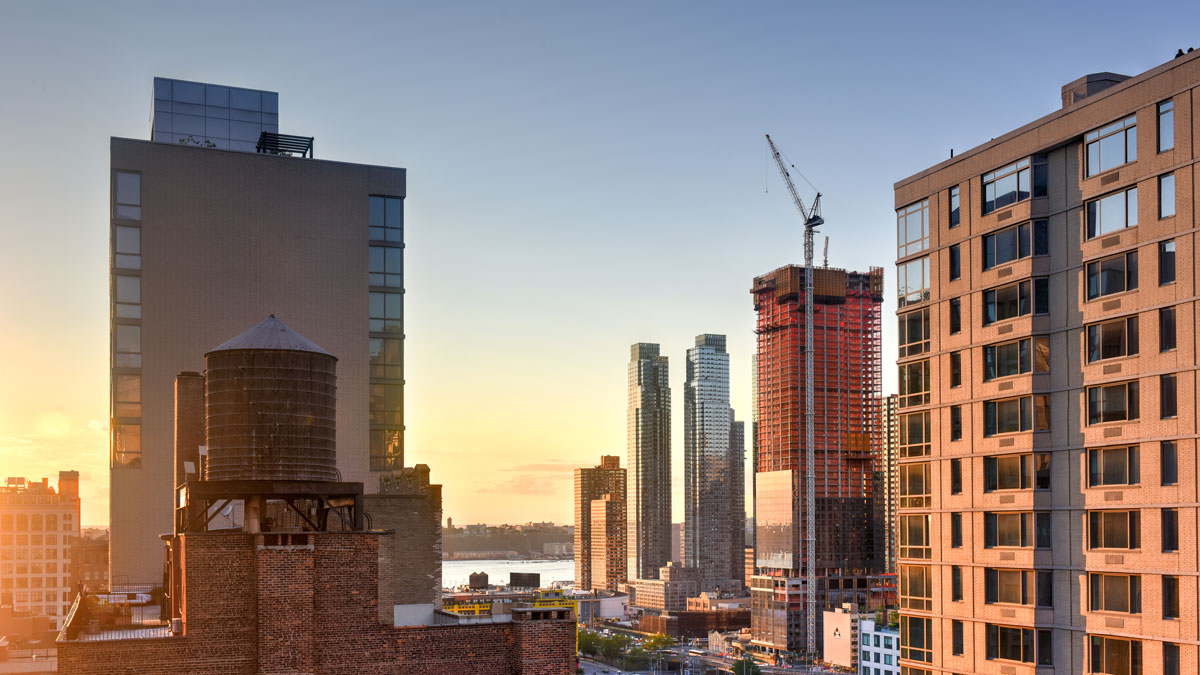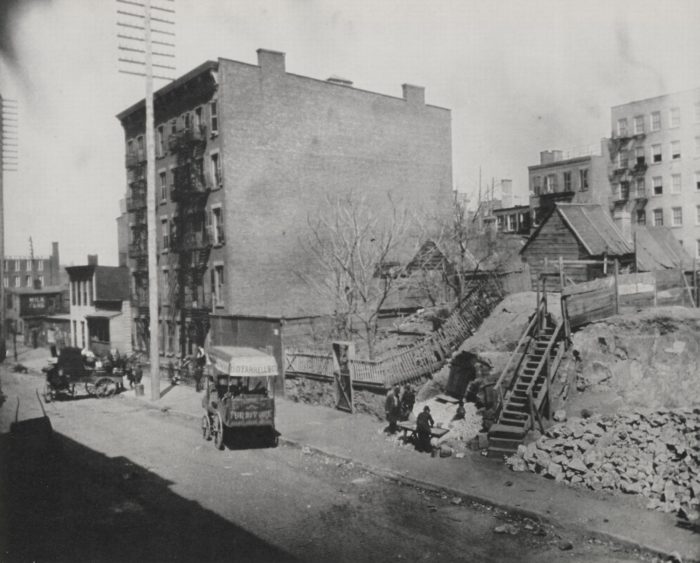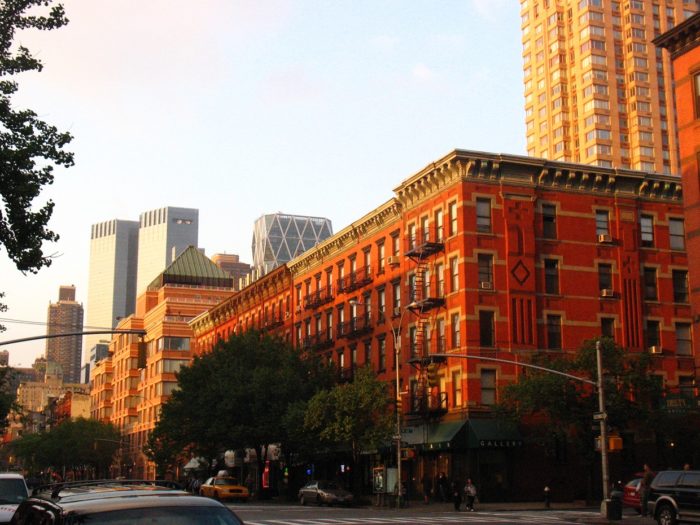“Hell’s Kitchen” is certainly an evocative name for a neighborhood. In fact, during the latter half of the 20th century, local businesses tried to redub the area “Clinton.” More recently residents have shrugged off those attempts, preferring the more colorful and now ironic moniker—but maybe that’s because they’re not aware that “Hell’s Kitchen” was originally a fairly accurate description of the area.
The stretch along the Hudson River between what is now 34th and 59th Streets was mostly farmland during Colonial times. By the mid-1800s, though, it had become the domain largely of African Americans and Irish immigrants, who worked at the local docks, slaughterhouses, soap factories, and lumberyards when they weren’t crammed together in tenements. Some sources say that “Hell’s Kitchen” first referred to a particularly notorious tenement on 54th Street; others say the rookery in question was on 39th Street and 10th Avenue.
Reformer Jacob Riis shot this photo, c. 1890, of one Hell’s Kitchen tenement and the remains of another. Image: Jacob Riis/Wikimedia
Another theory is that the neighborhood was given the name of one of the local gangs. If that’s the case, the area could have received a far worse name: Other gangs that reigned in the area included the Gophers, the Gorillas, the Parlor Mob, and the Westies.
A colorful, but probably apocryphal, anecdote has two policemen witnessing one of the numerous minor riots—between the whites and the African Americans, between rival gangs, between Irish Protestants and Irish Catholics—that occurred in the area. The younger of the two said, “This place is hell itself,” to which his more jaded partner replied, “Hell’s a mild climate. This is hell’s kitchen.”
During Prohibition a number of the tenements became bootleg distilleries, and even through the 1950s gangs held sway (though unlike the Jets and the Sharks of West Side Story, which took place in Hell’s Kitchen, these gangs didn’t perform grands jetés). Nonetheless, the moniker fell out of use—until a 1959 melee that led to the fatal stabbing of two teenagers in a playground on 46th Street between 9th and 10th Avenues. In response to newspaper headlines referring to the neighborhood as Hell’s Kitchen, local businesses and realtors decided to rebrand the area as Clinton. They borrowed the name from DeWitt Clinton Park, which takes up the blocks from 52nd to 54th Streets between 11th and 12th Avenues and was named after the sixth governor of New York.
Other than in real-estate listings and city zoning ordinances, however, “Clinton” never really caught on—at least as a name. As a desirable place to live, however, the neighborhood definitely became popular: Artists, up-and-comers, and families alike were delighted to find that gangs and crime were now a part of the area’s past. By the late 1990s the Clinton Neighborhood Association had become the Clinton/Hell’s Kitchen Neighborhood Association; today, for the most part, “Clinton” has gone the way of the soap factories and the Westies. Now that the name no longer fits, Hell’s Kitchen’s residents have embraced it.
Looking north along Ninth Avenue between 46th and 47th Streets. Image: Roger Rowlett/Wikimedia




